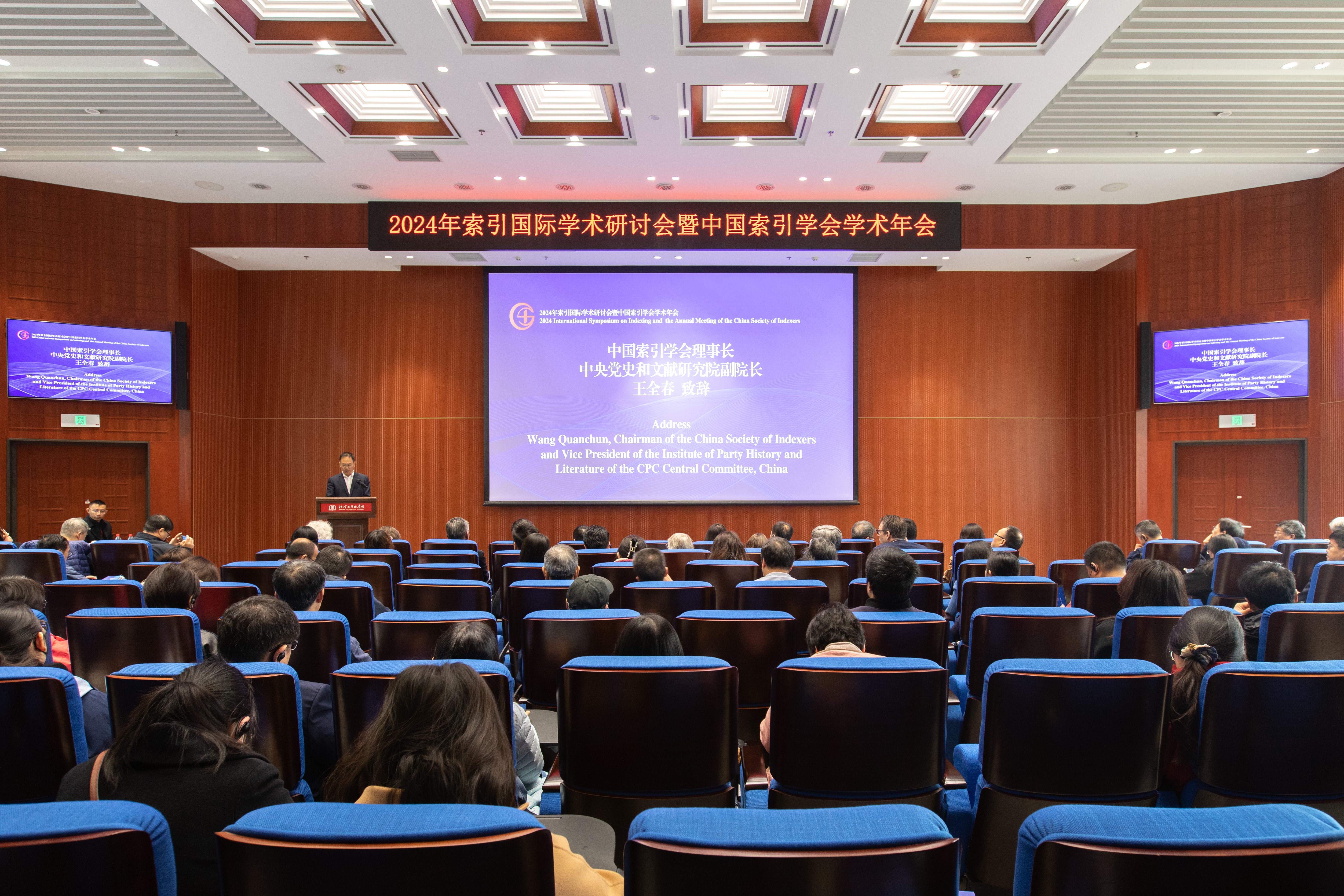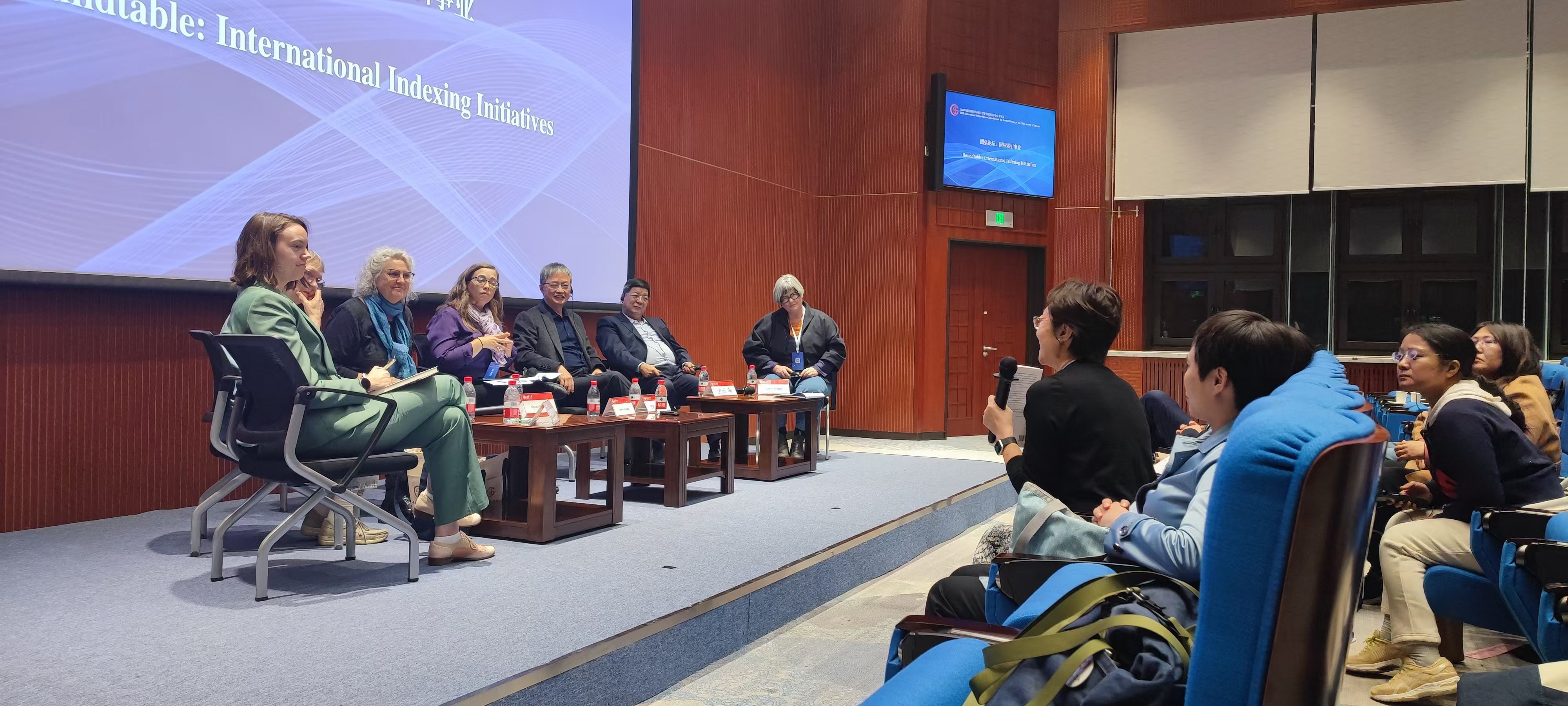2024 International Symposium on Indexing Highlights AI’s Impact on the Field
Nov 01, 2024
Peking University, November 1, 2024: Themed on “AI and Indexing: Opportunities and Challenges”, the 2024 International Symposium on Indexing and the Annual Meeting of the China Society of Indexers took place at Peking University Library on October 25th and 26th. Organized by the China Society of Indexers and jointly hosted by Peking University and Fudan University, the event gathered over 100 experts and scholars from global institutions to explore the opportunities and challenges that artificial intelligence brings to the field of indexing.

Ren Yuzhong, Vice President of Peking University, delivered the first address by discussing how the university’s indexing initiatives align with China’s rapid development in information management. Ren emphasized the vital role libraries play in navigating the vast amounts of data generated today, noting that without proper indexing, society risks being overwhelmed by the mass of information.
Following Ren, Wu Libo, Assistant to the President of Fudan University, discussed how AI is raising the bar for indexing, particularly in handling large datasets from diverse fields. Wu stressed the importance of using AI to reduce data noise and enhance the accessibility and logic of information systems.
Former president of the American Society for Indexing (ASI), Devon Thomas, focused on the shift towards online indexing standards and international collaboration. Thomas also noted AI’s role in improving processes like printing and translation, though she acknowledged that AI content generation still has limitations, while hinting at potential future advancements.
Ge Yongqing, founder of the China Society of Indexers, addressed the growing influence of China’s indexing efforts across all academic disciplines, while Wang Quanchun, Chairman of the China Society of Indexers, called for deeper research and international cooperation in the field. He emphasized the need for openness, sharing, and cooperation with global indexing organizations, expressing confidence that these efforts will lead to successful advancements in the field. Wang concluded his address by expressing hope that the symposium would be a resounding success, contributing to the future development of indexing on both domestic and international fronts.
The opening conference highlighted both the opportunities AI offers for enhancing indexing and the challenges it brings. It emphasized the importance of deeper research, global cooperation and the sharing of standards to fully harness the potential of AI in transforming the indexing landscape.
The symposium featured a diverse program that included a keynote speech session, round-table forums, and sub-forums. The keynote session opened with experts presenting on topics such as AI-driven innovations in indexing and the evolving role of technology in the field’s history. This was followed by the round-table forum, where representatives from various countries discussed their national organizations' efforts to advance indexing knowledge, shared challenges and emerging trends, and recognized the China Society of Indexers' significant contributions to the field. The round-table concluded with a Q&A session, facilitating in-depth dialogue on shared concerns.

The event concluded with sub-forums focused on themes such as “Intelligent Indexing: Technology and Methods,” “Index Compilation: Theory and Practice,” “The Indexing Profession: Retrospective and Prospective,” and “Indexing Practice: Accomplishments and Insights.” These sessions provided a platform for detailed discussions on emerging innovations and methodologies in indexing.
Reported by: An Bingjie
Edited by: Zhang Jiang

Opening Ceremony of the Symposium
Ren Yuzhong, Vice President of Peking University, delivered the first address by discussing how the university’s indexing initiatives align with China’s rapid development in information management. Ren emphasized the vital role libraries play in navigating the vast amounts of data generated today, noting that without proper indexing, society risks being overwhelmed by the mass of information.
Following Ren, Wu Libo, Assistant to the President of Fudan University, discussed how AI is raising the bar for indexing, particularly in handling large datasets from diverse fields. Wu stressed the importance of using AI to reduce data noise and enhance the accessibility and logic of information systems.
Former president of the American Society for Indexing (ASI), Devon Thomas, focused on the shift towards online indexing standards and international collaboration. Thomas also noted AI’s role in improving processes like printing and translation, though she acknowledged that AI content generation still has limitations, while hinting at potential future advancements.
Ge Yongqing, founder of the China Society of Indexers, addressed the growing influence of China’s indexing efforts across all academic disciplines, while Wang Quanchun, Chairman of the China Society of Indexers, called for deeper research and international cooperation in the field. He emphasized the need for openness, sharing, and cooperation with global indexing organizations, expressing confidence that these efforts will lead to successful advancements in the field. Wang concluded his address by expressing hope that the symposium would be a resounding success, contributing to the future development of indexing on both domestic and international fronts.
The opening conference highlighted both the opportunities AI offers for enhancing indexing and the challenges it brings. It emphasized the importance of deeper research, global cooperation and the sharing of standards to fully harness the potential of AI in transforming the indexing landscape.
The symposium featured a diverse program that included a keynote speech session, round-table forums, and sub-forums. The keynote session opened with experts presenting on topics such as AI-driven innovations in indexing and the evolving role of technology in the field’s history. This was followed by the round-table forum, where representatives from various countries discussed their national organizations' efforts to advance indexing knowledge, shared challenges and emerging trends, and recognized the China Society of Indexers' significant contributions to the field. The round-table concluded with a Q&A session, facilitating in-depth dialogue on shared concerns.

Round-table: International Indexing Initiatives
The event concluded with sub-forums focused on themes such as “Intelligent Indexing: Technology and Methods,” “Index Compilation: Theory and Practice,” “The Indexing Profession: Retrospective and Prospective,” and “Indexing Practice: Accomplishments and Insights.” These sessions provided a platform for detailed discussions on emerging innovations and methodologies in indexing.
Reported by: An Bingjie
Edited by: Zhang Jiang





